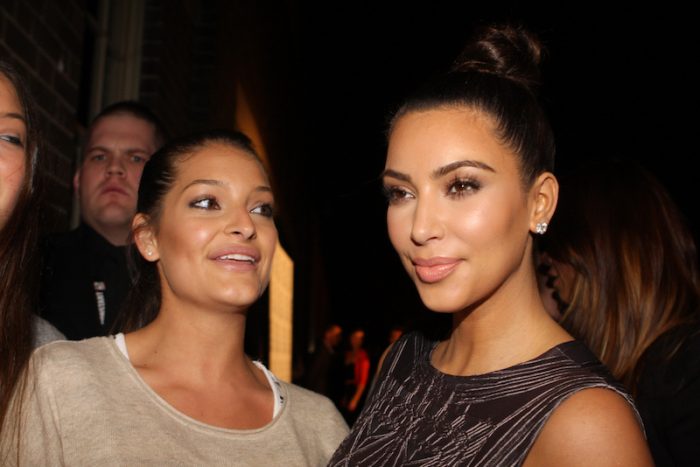I cut off almost all my friends in 2018.
A four-digit network on Facebook, a five-going on six-digit social media following.
I changed my number eight times and closed off all known accounts I still had access to. I stopped performing in public, and then being in public because I never knew who would show up, and what scathing narrative would be created. I stopped attending events. I stopped going to the gym. I stopped shopping in stores. I stopped yoga and dance, and I stopped listening to music.
Twenty-nine and reckless, with too many photos, and too few passwords, I was easy prey.
And I fell each time. Predictable. Expected. Compromised exactly by design and direction. I trusted conductors, directors, and moved like a puppet. I retreated from public life for self-preservation, though it wasn’t out of instinct. It just felt safer.
Safety, like love, were feelings I never quite figured out. Though I had always equated them to music. “To the pure, all things are pure.” I was lured into a web of horror thinking it was beautiful. Often, as I reflect back, I feel I would have fared better in the court of public opinion because I wouldn’t have been completely alone, battered, unable to recognize abuse for what it is. Even if just one person stood up for me, that would have broken the spell. But I didn’t let anyone in. I hid.
I became cowardly, like the ghosts I used to date, but worse, because I was still taking dictation from them. As if repeating their bad habit releases me from the pain. The math didn’t add up that way. Instead, the driver’s seat became vacant. And just about everyone took me for a ride.
In the years since, I continued to become disfigured. Accounts hijacked, fake, I took up a lot of mental space while living an extremely isolated life. I was either working in a surveilled studio or I was taping myself in my apartment. But none of this footage was what was shown and passed around.
So, I kept a camera running at all times, which isn’t so different from what my life became, four years prior. Except for this time, I know exactly where the camera is, and I’m pressing record. Call it what you want; it was my only defense against growing narratives that branded me in poison.
After my world exploded, it split into many: people who know me, people who paid their bills attempting to destroy me, and people who believed they know me, through what they learned from screens. The former are few and distant (in geography); the latter became increasingly raucous, intrusive, and violent. The hate, blame, shame, and the anger channeled at me sank me to depths I know to be hell. I know I’m not the only one, because Billie Eilish wrote a song about just that.
It would be easy to point fingers back to where they came from. I’ve fought and screamed and opened the door on my side of the car as the wheels were still turning. I had never lost a single debate in life, and yet I continued to fail my own narrative. When I screamed out for help, I was punished, discredited, threatened. I no longer protested. But the lashes didn’t stop.
It would be easy to detail my failings at love with the men who dominated the scenes. But, as I’ve become healthier over the past year, I suddenly recognized that my derailment had a lot to do with the female company I’ve kept close to me, the female voices that I had mistakenly trusted, and emotional abuse by older women, in forms I didn’t have the capacity to recognize.
These women played, used, and betrayed me harder than any man I’ve known.
Their energies left spells on me. Spells that took over a decade for me to break. So, I’m going to spell out things as clearly as I can here because what hurts me more than abuse from the opposite sex is abuse from our own; the ones who give a bad name to feminism, to friendship, to being female.
When I moved to New York a decade ago, I didn’t come here to make friends. Like millions before me, I came here to become someone, and by sheer proximity, I allowed three girls to be my closest friends. Choosing friends by zip code over quality was my first mistake.
I met C in a class at university. She sat behind me and asked me if I was Korean. I confided in her my first toxic encounter with a man—our accompanist in class and stayed over at her place as I recovered from another heartache. I showed up to support her at her concert and was introduced to a friend who was invited for a guest performance on stage. This friend, she so insisted was “really into me,” was a monster. But I was lured by the live music that was the soundtrack of my descent.
I met L in a different class, where we shared a brief moment together in the alcove as we were to enter the stage at the same time, every night. She met my then older boyfriend, who came to see the show, and I met her much older boyfriend, too. Except for I wasn’t ashamed of the age gap. I dated men who booked work off of their looks, while L and F dated for apartments and allowances. F, I met at Carnegie Hall—a lure I fell for more than once. We shared stages and screen time and I held her up when she couldn’t hold her own.
When she was heartbroken and drunk on New Year’s Eve, the guys on the dance floor asked, “Is your friend always this embarrassing?” I apologized on her behalf for a good part of that evening, took care of her, and at 3 a.m., a FaceTime video call from her manager in Los Angeles was the first red flag I sensed in a long time.
Jolted, I waved my hands in protest. “Please don’t turn your phone to face me. I don’t want to be on video in bed.”
Though we were after very different things, we shared a common secret—dating older men. It’s hard to tell what might be warped, where, when toxic company bends us into shapes that best suited mental slavery—“mind-f*cking” was what they called it. I took the poison because they were candy-coated and came from friends who validated my talent and spoke to me nicely.
Let’s talk about age.
The first woman who was openly hostile to me was the wife of a piano teacher. Up until then, women like her, much older than me, adored me. They were my teachers, counselors, bosses, and most of them encouraged me, praised me, wrote recommendation letters for me…they were my strongest allies, and I was most loyal in return. A noticeable gender shift happened when I turned 18—most of my professors became men, and the industries I worked in were dominated by men. Women were rare. Supportive older women disappeared.
I call her the wife of my piano teacher because I don’t know her any other way. When I pulled an all-nighter before an exam, to produce the official recording of a concert and failed to list her name in the credits, she stormed out after a cutting remark, leaving me frozen and stunned—it was a project I was proud of, and it was the first time I’d ever felt blindsided and attacked for nothing. My piano teacher took me aside and explained her behavior as menopause, before going back to “massage her ego.”
It was my first exposure to what would become a familiar dynamic that I now recognize as abuse.
When I eventually made it to Juilliard, a piano teacher, female, also much older than me, approached me in the third-floor bathroom, “Do you want to play at Carnegie Hall?” I don’t know if all roads lead to Rome, but all the routes I’ve taken to get to Carnegie Hall sure landed me in hell.
Along the way, I continued to struggle with female friendships and so I became uninterested in them.
All I had known was betrayal, fickleness, fragility, and cruelty. I let so many things tangle me up—naivety, misplaced trust, politeness. I wasn’t immune to misguidance that came from sh*tty girlfriends and hostile older women. I was lost on my quest to find my place in the world.
Until At Home in the World. Until Joyce. The first year I hid away, I looped her audiobook on repeat. It was the only thing that made me feel understood. Facing constant mental battery—there is one person who will get me, I thought to myself. So, instead of finding myself, I set off to find Joyce.
When I attended her memoir writing workshops, I had no intention to make friends. I had been seared enough, still feeling without skin. But my world was broken open by the light and love of the most extraordinary women, from ages 21 to 72, mostly older, mostly of the demographic who had always been hostile to me, but these women were the opposite—they showed me what protection is, showed me what real care is. Through their stories that detailed their pain and vulnerabilities, they showed me kindness, love, and forgiveness. They didn’t judge or bend me out of shape; their words didn’t cut or diminish me. And when I was forthcoming with all the shame I had carried, when I had no voice, and the pain came out in whispers, they carried me out of that with an open heart and a strength I’d never known to even exist.
It was a treatment I had never known.
Before these women, I have often had to preface my stories with, “I’ve had such sh*tty girlfriends.” I can say that now because, in the company of great women, contrast is easy to tell, for the recovering blind. This contrast upends the world as we know it and flips the landscape of the structures that bleed us. There’s no story in a cast of sh*tty characters, where nobody changes, only textures that grind us down and leave us skinned and seared.
Every time we numb ourselves to carry on, this is a vote for darkness. Escaping emotional pain couldn’t be more natural, but it’s not the way out of suffering. Light and darkness are energies that we can intuitively sense, not a superpower, but an innate ability that only gets activated when we practice it. Of the many ways that lead to hell, this is the only way out.
Every time I fell, it was because I had betrayed my instincts. I didn’t love myself enough to trust myself.
When we are so empty and lacking grounding, osmosis happens with a dangerous degree of intensity and speed. But we can’t wait for other people to transform us. It’s our work to love, to trust, to locate who we were before we became cynical and numb.
It’s our work to pull out the weeds, so we can one day, have a garden.
~









Read 0 comments and reply